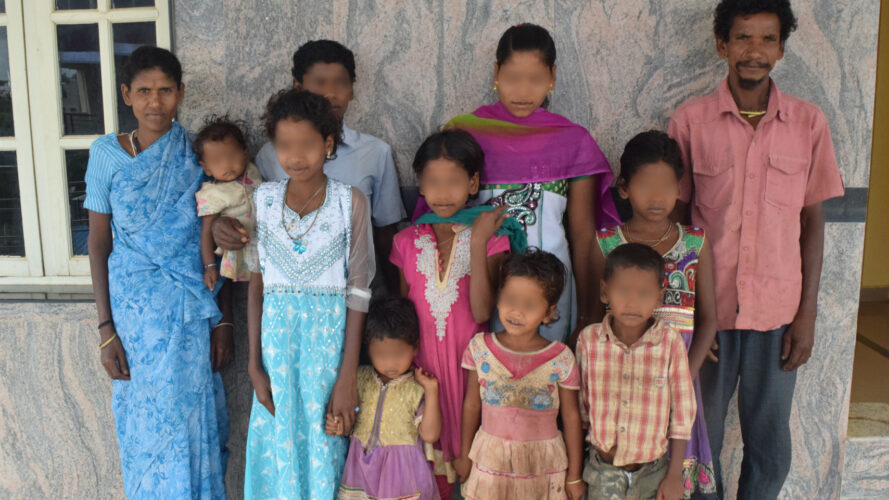Parents and Nine Children Rescued from Slavery at a Farm
Slavery
BANGALORE, INDIA – Two tiny children got their first taste of freedom this week, as IJM and local law enforcement rescued their family of 11 from bonded labor slavery at a rural farm in Karnataka state.


Four years ago, a trafficker had preyed on this family’s poverty and promised them good jobs at the farm with a generous salary. Instead, the farm owner gave them only 20,000 rupees (about $290)—not as salary, but as a loan they would have to repay with their work. This predatory debt is called bonded labor slavery.
Next, the owner forced the husband and wife to work from 4:00 am to 7:00 pm, seven days a week, tending tomatoes and bananas under verbal and physical threats. Six of their nine children—now ages 4 to 17—were made to graze and milk 15 cows and 20 goats during the day.
Only the father was ever allowed to leave the farm, to buy meager food provisions for his family in a nearby village.
The parents told police that their youngest two children—aged 2 years and 10 months—were born at the farm without a doctor’s help. In fact, none of the children had ever gotten medical care, vaccines or even basic education.
“Several times I told the owner I want to put my children in school, but he abused us and said it’s not needed,” their father explained. “He used to always abuse us using vulgar words, saying we are not working well even though we worked from 4:00 am till 7:00 pm on all seven days.”
Under the slave owner’s control, they could not even visit dying relatives—even the husband’s own mother. He described, “When my wife’s brother passed away, we asked permission to go back to our village for the funeral but he did not allow us. He said ‘Let the dying die. Why should you go?’ In the last four years, we have never gone back to our village as a family…We were so helpless.”
After bringing the family to safety on June 26, government officials are conducting further interviews with the survivors and will be issuing them release certificates—which break their false debts—before taking them back to their home state of Tamil Nadu. Another set of local leaders will help them resettle and begin the process of rehabilitation.


IJM staff will provide aftercare support for the family over the next two years.
Police are still working to apprehend the farm owner, but have lodged charges against him under India’s anti-trafficking and child labor laws.
In Indian law, human trafficking and debt bondage are serious crimes—especially since children were involved—with a minimum sentence of 14 years, with a maximum of life in prison.